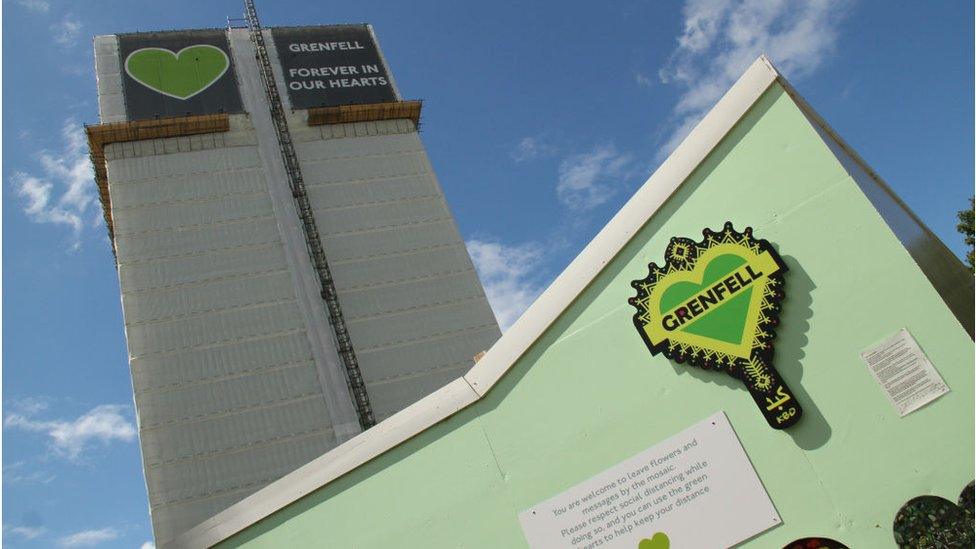Kingspan denies misleading on fire safety
- Published
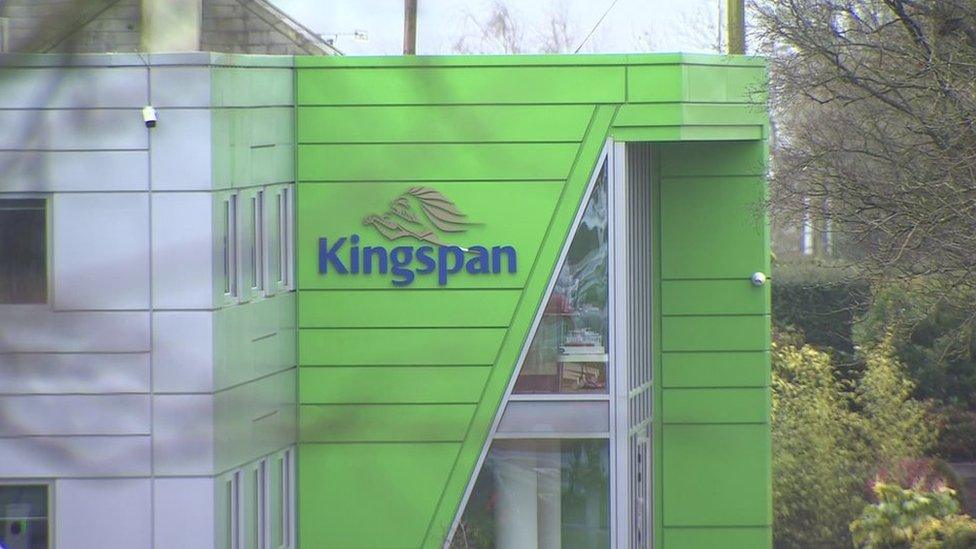
Kingspan has its headquarters in County Cavan
Kingspan tried to influence Northern Ireland's fire safety regulations using research the Grenfell Tower inquiry heard was "thoroughly misleading".
The building products company "strongly rejects" its research was misleading.
The NI Executive is considering whether to ban combustible material, such as cladding and insulation, from the exterior of buildings.
As part of a consultation, Kingspan representatives gave evidence to a Stormont committee in December 2020.
The company, which has its headquarters in County Cavan, also presented written evidence in October 2020.
Combustible products are those which are able to catch fire and burn easily.
They have been banned from use on the external walls of high-rise residential buildings in England and Wales.
Kingspan's view is that banning combustible products and allowing only non-combustible materials is no guarantee of fire safety.
It says that what matters is how different materials are combined into an overall cladding system, which is then attached to a building.
It argues that combustible materials can be safe if used in the correct configuration, while some products classed as non-combustible can still be unsafe.
The company therefore tries to persuade governments that, rather than banning individual products based on their combustibility, fire safety should be based on large-scale fire tests which measure how a large mock-up of an entire cladding system performs.
In their evidence to Stormont's Finance Committee, two Kingspan employees said there was evidence that some products which had passed lab tests later failed a large-scale fire test.
Fergal Murphy told the MLAs: "We are aware of a number of systems featuring non-combustible or limited-combustibility insulation and cladding that have failed to pass a BS 8414, but which would be deemed compliant under current building regulation."
BS 8414 refers to a large-scale test.
His colleague Alan Macklin said: "If there are any questions about the validity of BS 8414 as a test methodology, we have witnessed non and limited-combustibility products being tested in a large-scale assembly and failing that test."
Those failed large-scale fire tests have a history - they featured prominently in the Grenfell Tower inquiry earlier in 2021.
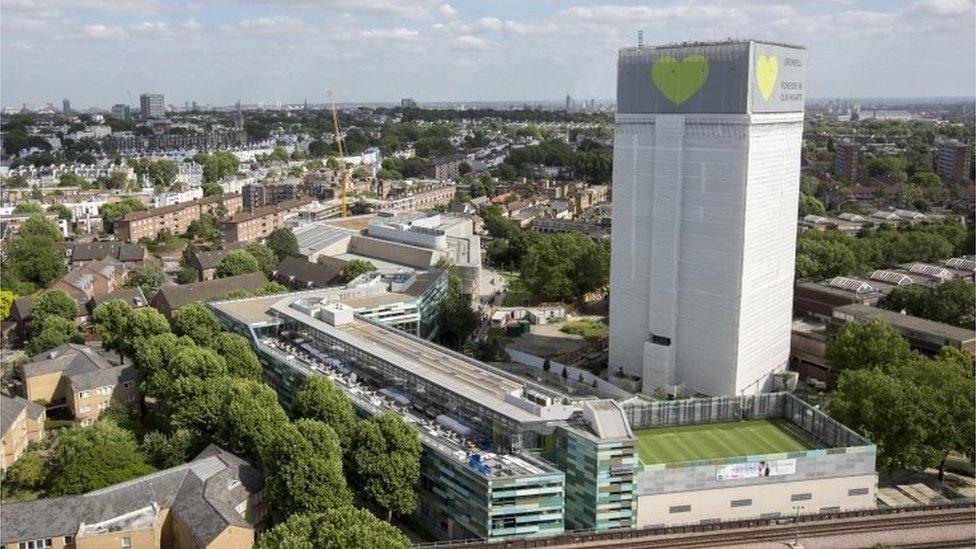
Seventy-two people died in the Grenfell Tower fire in 2017
Some of Kingspan's insulation was attached to Grenfell Tower and so the company's conduct has been scrutinised by the inquiry.
Seventy-two people died in the fire in west London in 2017.
After the disaster, the UK government began consulting on whether to ban materials from tall buildings if they were shown to be combustible in lab tests.
Kingspan was keen to avoid such a ban and began a political lobbying campaign, arguing that all products should instead be subject to large-scale fire tests.
It says it did this out of public concern for building safety, rather than commercial reasons.
As part of its campaign, Kingspan organised a large-scale fire test involving a rival company's limited-combustibility cladding panel known as Vitracore G2, used in a system with non-combustible insulation.
It emerged at the inquiry that the G2 was specifically chosen for the test because Kingspan knew it already had a poor testing record and the system was likely to fail.
The system did fail and Kingspan later used this in a letter to a House of Commons select committee to argue that large-scale fire tests should be preferred over product bans.
However, it did not reveal that it had chosen to test the G2 because it knew it was likely to fail.
Misleading research?
During the Grenfell Tower Inquiry the lead counsel, Richard Millett QC, put it to Kingspan that by omitting that fact the company was being "thoroughly misleading".
He went on: "You are misleadingly omitting a critical fact, which was that you precisely selected Vitracore G2 cladding panels because of its poor test record in an 8414 test."
Kingspan denied that it had misled or intended to mislead.
It said: "We strongly reject the suggestion of counsel for the Inquiry in this regard.
"At the time of the July 2018 Test, Vitracore G2 cladding panels were rated as of limited combustibility (A2) and available in the UK market.
"Far from being misleading, this test generated action taken in the interest of fire safety and illustrated the risks of relying on the linear route.
"This supports our position that the test evidence raised points relevant to public safety issues."
The G2 product was subsequently suspended from sale, and on retesting in a lab it was found to contain more combustible adhesive than when originally tested.
This move to withdraw the product led to a Kingspan executive telling colleagues that this had "killed" the failed test which "was our most powerful test".
However, Kingspan was still relying on this test when it gave evidence to Stormont two years later.
It said it was justified in doing so: "The Vitracore G2 test illustrated an important point of public safety: namely that the regulatory regime then and now permits the construction of unsafe cladding systems.
"The passage of time between September 2018 and December 2020 does not change the validity of this point."
Kingspan also relied on two additional tests in which systems using limited or non-combustible components failed.
However, these tests were not representative of cladding systems used in the UK, something which the company acknowledged in its evidence to the House of Commons committee.
Stormont's consultation on building regulations and fire safety concluded late last year, and the Department of Finance said officials were currently finalising post-consultation proposals with the local Building Regulations Advisory Committee (NIBRAC).
"This will involve considering developments that are expected to emerge soon from ongoing reviews in other jurisdictions," said a department spokesperson.
"The department is working towards the introduction of amendments to legislation and associated technical guidance in the current mandate."
- Published2 December 2020
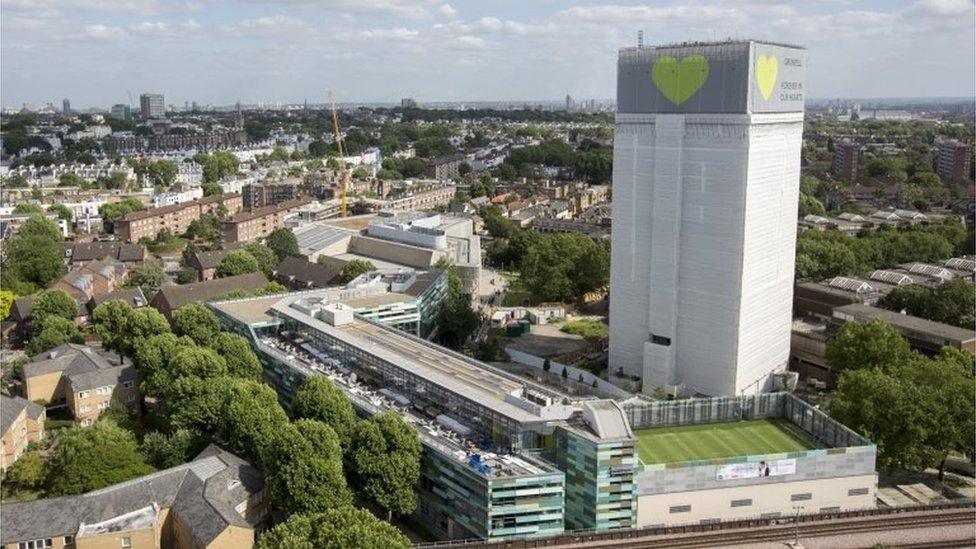
- Published8 February 2021
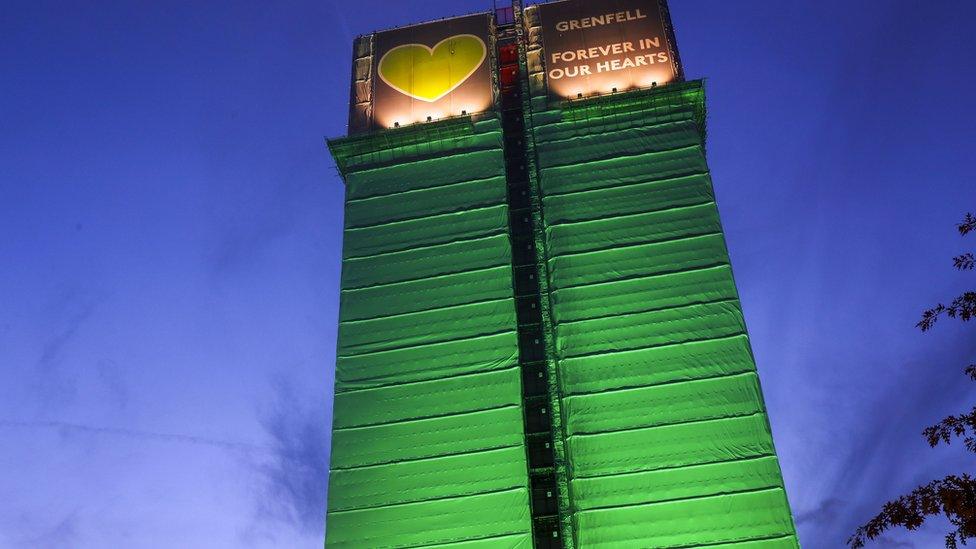
- Published24 March 2021
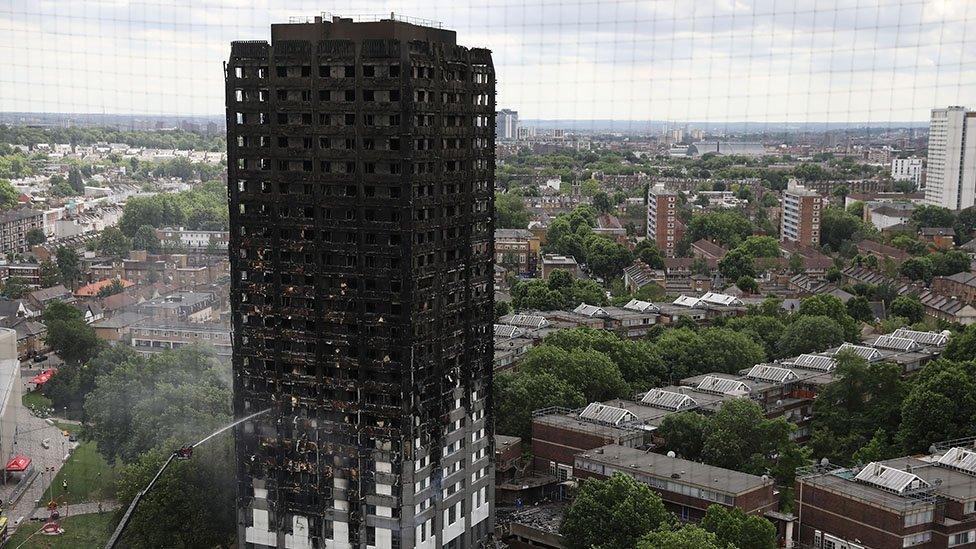
- Published19 January 2021
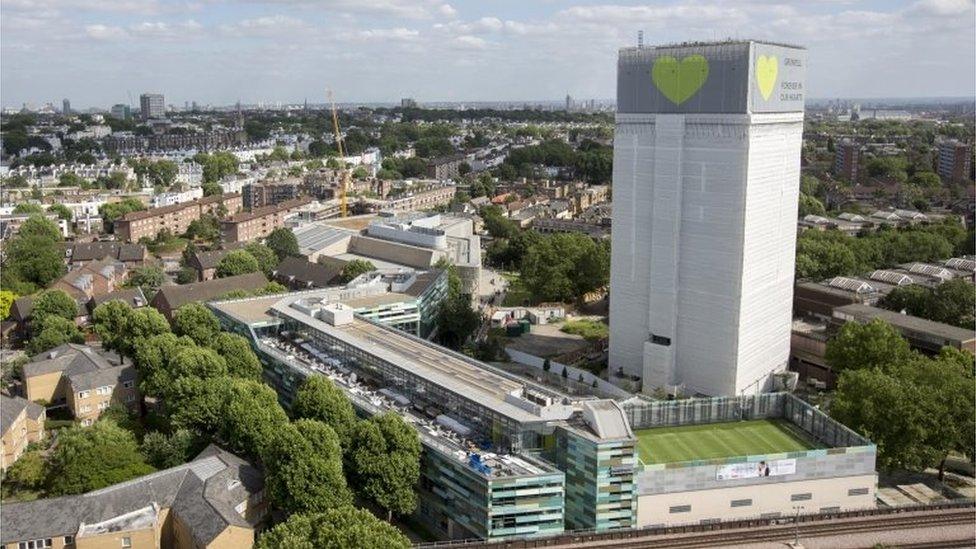
- Published23 December 2020
